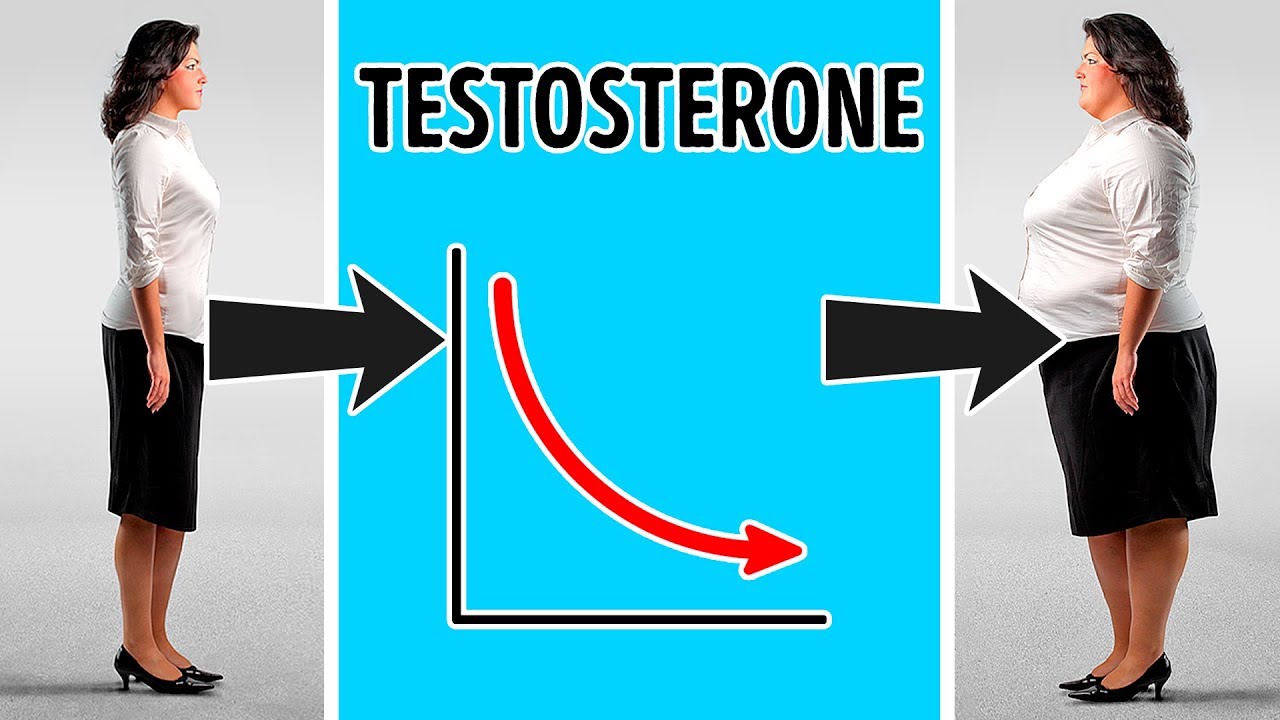9 Hormones That Lead to Weight Gain and Ways to Avoid It
How to Lose Weight without Workouts. You might think the only reason why you gain weight is overeating, but in fact it can also be the result of your hormones being all out of whack. Triggers like stress, age, genes, and poor lifestyle choices can cause a hormonal imbalance that leads to weight problems. To get the perfect body and keep it slim and slender, you have to follow our simple tips and keep 9 hormones under control.
Thyroid hormones 0:45
The thyroid is a butterfly-shaped gland at the base of the neck. It produces the hormones T3, T4, and calcitonin, which are responsible for maintaining the body’s metabolism. If the thyroid doesn’t produce enough of these hormones, a condition called hypothyroidism, the result is often weight gain. To keep it under control, consume iodized salt (or seaweed if you’re on a low-salt diet). Avoid processed foods. Take vitamin D supplements. Consume foods rich in zinc like oysters and pumpkin seeds.
Insulin 1:32
Overconsuming processed foods, unhealthy snacks, alcohol, or artificially sweetened drinks can cause the body to develop a resistance to insulin. This means that muscle cells won’t recognize glucose-bound insulin, so all that extra glucose remains in the bloodstream where it doesn’t belong. This causes a spike in blood sugar levels, leading to weight gain and Type 2 diabetes. To avoid it, consume lots of leafy greens and seasonal fruits and veggies. Eat foods full of omega-3 fatty acids. Drink at least a gallon of water every day. Exercise a minimum of 4 hours a week.
Testosterone 3:45
Testosterone is often considered a strictly male hormone, but it’s produced in women too. It helps burn fat, strengthen the bones and muscles, and improve the libido. Age and high stress can cause a significant decrease in testosterone levels in women, leading to a loss of bone density and muscle mass. Work-out regularly and focus on muscle-building exercises. It helps boost testosterone levels. Avoid alcohol. Take protein supplements. Get enough fiber in your diet with the help of whole-grain foods, pumpkin seeds, and flaxseed.
Leptin 6:39
Leptin is a hormone that keeps the body’s energy levels balanced by keeping hunger at bay. But when we eat food rich in sugar, the oversupply of fructose gets converted to fat that gets deposited in the liver, belly, and other regions of the body. It’s these very fat cells that secrete leptin. With high leptin levels, the brain stops receiving signals that the body doesn’t need to eat at a particular moment. Avoid sugary foods. Have no more than 3 servings of fruit per day. Consume dark green leafy veggies. Avoid processed food.
Music:
https://www.youtube.com/audiolibrary/music
TIMESTAMPS
Thyroid hormones 0:45
Insulin 1:32
Cortisol 2:39
Testosterone 3:45
Progesterone 4:40
Estrogen 5:33
Leptin 6:39
Ghrelin 7:42
Melatonin 8:12
To sum it up 9:05
SUMMARY
-If the thyroid doesn’t produce enough of hormones T3, T4, and calcitonin, a condition called hypothyroidism, the result is often weight gain.
-Insulin is basically responsible for maintaining glucose levels in the blood. Overconsuming processed foods, unhealthy snacks, alcohol, or artificially sweetened drinks can cause the body to develop a resistance to insulin.
-The primary function of cortisol is to decrease stress levels by increasing blood sugar levels, among other things. Too much cortisol makes the body store more fat.
-Age and high stress can cause a significant decrease in testosterone levels in women, leading to a loss of bone density and muscle mass.
-Progesterone secretion can drop due to a variety of factors. This can result in weight gain and sagging skin.
-When estrogen levels go up, the cells that produce insulin get stressed. This makes you resistant to insulin, which causes a rise in blood glucose levels and leads to weight gain.
-When leptin levels go up, the brain stops receiving signals that the body doesn’t need to eat at a particular moment.
-Ghrelin stimulates the appetite and increases fat deposition.
-Melatonin is a hormone that regulates your natural sleep-wake cycle. If we don’t get proper sleep, this healing process gets disrupted, which causes stress and ultimately leads to inflammation-induced weight gain.
-Getting enough sleep, keeping a nutritionally balanced diet, drinking plenty of water, getting at least some physical exercise, and avoiding or limiting stress will keep your hormones under control.
Subscribe to Bright Side : https://goo.gl/rQTJZz
—————————————————————————————-
Our Social Media:
Facebook: https://www.facebook.com/brightside/
Instagram: https://www.instagram.com/brightgram/
5-Minute Crafts Youtube: https://www.goo.gl/8JVmuC
—————————————————————————————-
For more videos and articles visit:
http://www.brightside.me/



![[ID: Hx_A0iLhdr8] Youtube Automatic](https://bizimtube.com/wp-content/uploads/2021/03/id-hxa0ilhdr8-youtube-automatic-236x133.jpg)
![[ID: lp7w0UmpuIs] Youtube Automatic](https://bizimtube.com/wp-content/uploads/2021/03/id-lp7w0umpuis-youtube-automatic-236x133.jpg)
![[ID: s2-7T1TH-lY] Youtube Automatic](https://bizimtube.com/wp-content/uploads/2021/03/id-s2-7t1th-ly-youtube-automatic-236x133.jpg)
![[ID: b_lakC9M4UQ] Youtube Automatic](https://bizimtube.com/wp-content/uploads/2021/03/id-blakc9m4uq-youtube-automatic-236x133.jpg)
![[ID: r44yl6nPONs] Youtube Automatic](https://bizimtube.com/wp-content/uploads/2021/03/id-r44yl6npons-youtube-automatic-236x133.jpg)
![[ID: pAwto1YQjA8] Youtube Automatic](https://bizimtube.com/wp-content/uploads/2021/03/id-pawto1yqja8-youtube-automatic-236x133.jpg)
![[ID: XETG8azHiv4] Youtube Automatic](https://bizimtube.com/wp-content/uploads/2021/03/id-xetg8azhiv4-youtube-automatic-236x133.jpg)
![[ID: f3G_-S_2HUk] Youtube Automatic](https://bizimtube.com/wp-content/uploads/2021/03/id-f3g-s2huk-youtube-automatic-236x133.jpg)
![[ID: G8oWns54snA] Youtube Automatic](https://bizimtube.com/wp-content/uploads/2021/03/id-g8owns54sna-youtube-automatic-236x133.jpg)
![[ID: s0lIFXhu6aw] Youtube Automatic](https://bizimtube.com/wp-content/uploads/2021/03/id-s0lifxhu6aw-youtube-automatic-236x133.jpg)
![[ID: 4UTd2Ev8eYg] Youtube Automatic](https://bizimtube.com/wp-content/uploads/2021/03/id-4utd2ev8eyg-youtube-automatic-236x133.jpg)
![[ID: RKBGBjVJBxQ] Youtube Automatic](https://bizimtube.com/wp-content/uploads/2021/03/id-rkbgbjvjbxq-youtube-automatic-236x133.jpg)